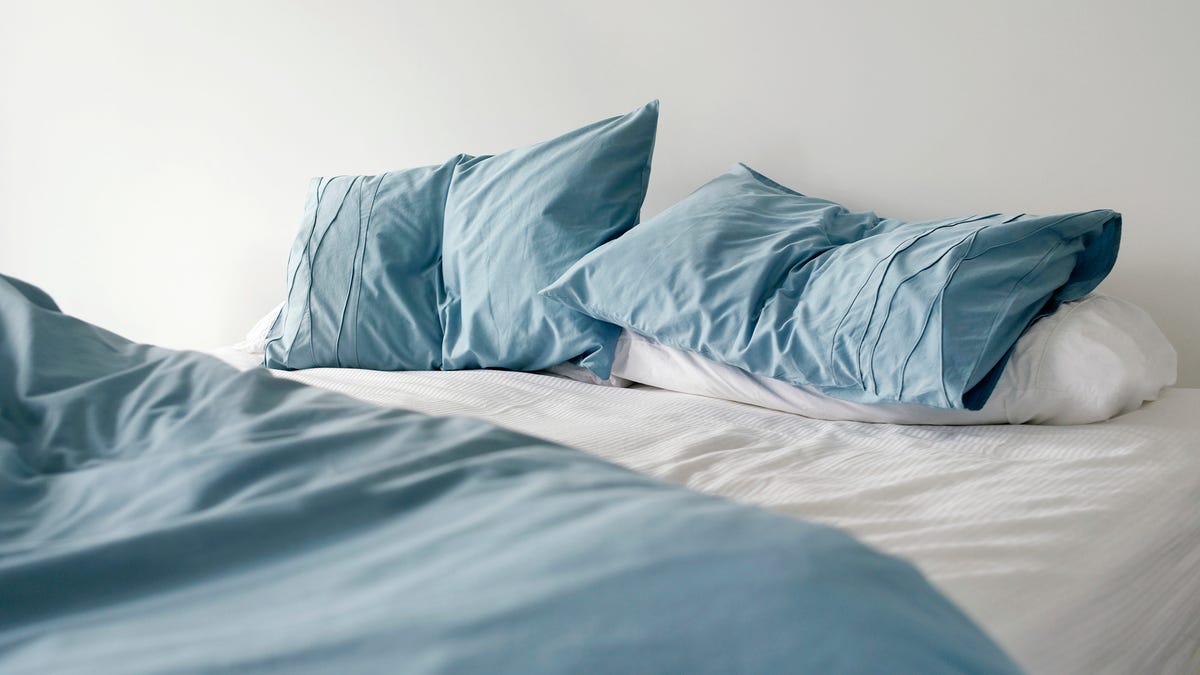I Logged My Sleep for a Week. You Should Too
I tracked my sleep for a week and learned a ton about myself.

I'm always passively tracking my sleep with my Fitbit, only checking it when I sleep poorly or when I wake up particularly tired. But there's merit in regularly tracking your sleep, especially if you struggle with insomnia or other sleep disorders.
Sleep trackers record the quality, duration and cycles of your sleep. It also records your heart rate, blood oxygen levels and movement.
Let's dig into how I slept from Sept. 11 through 17, and then I'll tell you why you should track your sleep too. I used my Fitbit Charge 4 sleep tracker to access the data.
Here's what I found out about my sleeping habits:
- I averaged about 7.5 hours of sleep each night.
- Some nights I slept much better than others. This varied depending on how stressful my day was or if I had something coming up that I was restless about.
- The time spent in REM, light and deep sleep stages were all within normal ranges, according to Fitbit.
- I really need to start going to bed earlier.
Reasons why you should track your sleep
It can help you identify patterns
Wearing a sleep tracker to bed is an easy way to identify patterns in your sleeping behaviors. While digging through my sleep data, I faced the reality that I go to sleep significantly later than I used to. Part of that was the pandemic causing my schedule to shift, but the rest is that it's become a habit not to get in bed until almost midnight. I usually get enough sleep, but sometimes that late bedtime has backfired.
When actively tracking your sleep, it's important to be mindful of your daily activities such as naps, caffeine, alcohol intake and stress. That way, you can draw parallels between how you slept and what happened that day. For instance, you can note how you slept on particularly stressful days to find correlations between your sleep and stress.
It encourages you to make changes when necessary
This is where sleep tracking shines. It helps you become more aware of your sleep habits and make changes for the better.
After you've compared your sleep patterns and daily activities to find the connections, you can use that information to make necessary adjustments. If you've noticed that on stressful days you wake up more through the night, you can start integrating stress-relieving practices into your day to mitigate the effect it will have on your sleep.
Other changes you may make is limiting caffeine intake to the early afternoon at the latest or alcohol a few hours before bed. You also may note how you nap and if it's negatively affecting your sleep.
I'm going to bed way too late on average for my lifestyle. How am I going to fix that? It turns out it's not that difficult to solve; you just have to be strategic. Instead of forcing myself to get in bed an hour and a half early, I will start moving my bedtime up by 15 minutes each day, so my body can adjust over time.
Here you can see my sleep cycles and how often I woke up.
My final word on sleep tracking
Fitbit has a lot of great takeaways to learn from when tracking your sleep, but it isn't a perfect system. I noticed that my sleep and wake times weren't fully accurate. They weren't far off, but if you're tracking that closely, you may also notice some discrepancies. These variations may come from how Fitbit tracks sleep, such as using your movements and heart rate to track sleep. After an hour, if you haven't moved, it may assume you're asleep.
This in no way negates the value of tracking your sleep. The tracking isn't significantly far off, so it's still a great way to monitor your sleep quality.
If you're having trouble sleeping, find out how to nap without affecting your sleep, how to fall asleep in under 10 minutes and which natural sleep aids work best for insomnia.

